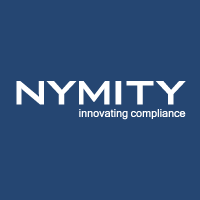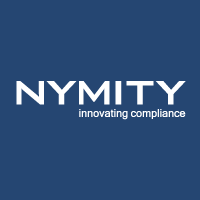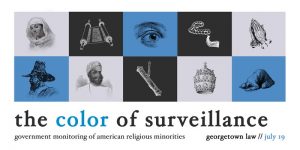Home
Use our global calendar of privacy events to locate an event near you.
FILTER BY

| In three months, new legal requirements will come into play. Organisations will be required to maintain a record of data processing activities under the GDPR. Are you ready?
78% of Organizations Have Not Completed Their Records of Processing Requirements* This webinar is eligible for 1 CPE Credit. In this Webinar, you will discover: What are the legal requirements for records of processing under the GDPR; *Data from Nymity Benchmarking |

| Privacy Offices need to understand how to navigate the different types of privacy compliance software to mitigate risk, build accountability, and achieve ongoing compliance with the GDPR (and the 700+ other regulations).
Time is Running Out for GDPR Readiness and Compliance This webinar is eligible for 1 CPE Credit. In this Webinar, we will: Help you assess when software would be beneficial and provide a return on investment; Legal Research Software Privacy Office Support Software Privacy Management Software In the final portion of the webinar, we will showcase the features and benefits of Nymity privacy compliance software in the categories above. We are here to help you assess whether your organisation would benefit from software and which tools will ensure you are GDPR ready and compliant. |

| In just two months, organisations that are not GDPR-ready will face potential actions. Are you prepared?
The GDPR Deadline is Almost Here This webinar is eligible for 1 CPE Credit. Focusing on the practical and operational aspects of the GDPR, in this webinar you will discover: Which GDPR compliance issues are at the forefront of Privacy Officers’ minds; |
featuring author, Jennifer E. Rothman, Professor of Law and Joseph Scott Fellow, Loyola Law School
Tuesday, April 3, 2018 at 12:00 pm
Berkman Center for Internet & Society at Harvard University
Harvard Law School campus
Wasserstein Hall, Milstein East A (Room 2036, second floor)
RSVP required to attend in person
Watch Live Starting at 12pm
(video and audio will be archived on this page following the event)

Organizations are trying to better understand how to use legitimate interests as a lawful basis for processing under the GDPR.
Date: May 9, 2018 Time: 10:00 am EDT
Nymity and the FPF (Future of Privacy Forum) released an important study on legitimate interests under the GDPR to wide acclaim: Processing Personal Data on the Basis of Legitimate Interests Under the GDPR. In this webinar, our panelists will discuss specific cases that have been decided at the national level by DPAs and Courts from the European Economic Area (EEA) and the most relevant cases where the Court of Justice of the European Union interpreted and applied the “legitimate interests” ground.
Join us to gain valuable insight concerning over 40 cases examined representing a wide variety of data processing activities from over 15 countries, such as:
- Using key-logger software for employee monitoring
- Use of GPS tracking data for private investigations
- Disclosing health data for litigation purposes
- Disclosing personal data for debt collection purposes
- Sending emails without consent for electoral purposes
- Publishing the sale price of homes that are no longer on the market
- Recording employee misconduct
All of the cases discussed are found in the Nymity Research™ legal compliance software solution which contains over 25,000 References, including English translations of foreign documents.

The GDPR has raised the bar with new requirements on companies to justify their use of EU personal data. And while relying on consent is not the only legal option available, it’s successfully put GDPR at the top of every inbox as consumers have been submerged in emails from companies urging them to “stay in touch” or “not miss out”. Are these emails really necessary? What do I need to include in my privacy notice or consent form? What kind of records do I need if a regulator asks?
With a divergence of opinion, consent management remains a hot topic and has generated a lot of questions and uncertainty.
- The GDPR requirements on determining the legal basis for processing
- The most recent guidance from regulators on seeking consent
- Sample consent forms, legitimate interests assessments and other best practice examples
Can’t make it? Register anyway – we’ll automatically send you an email with both the slides and recording after the webinar!
TrustArcWebinar FAQs: Click here for answers to the most commonly asked webinar related questions.
#trustarcGDPRevents

Across our country’s history – from the surveillance of the Separatists we now know as Pilgrims in 16th and 17th century England, to federal house raids and interrogations of early Mormons in the Utah Territory in the 19th century, to the 20thcentury surveillance of Jewish, Muslim, Quaker, and Sikh communities, to modern post-9/11 surveillance systems –government monitoring has long had a deep and disparate impact on American religious minorities.
The Color of Surveillance: Government Monitoring of American Religious Minorities will trace that history, and ask hard questions about what it means: Is modern surveillance consistent with the intentions of the American founders – or, for that matter, the events that precipitated the migration of English Separatists to the New World on the Mayflower? Do modern counterterrorism initiatives appropriately protect civil rights and civil liberties? How are local communities, advocates, and artists responding to these challenges?
Now in its third year, The Color of Surveillance, organized by the Center on Privacy & Technology at Georgetown Law, convenes academic, policy and government experts alongside local and community activists and artists. Prior speakers have included the Pulitzer-winning biographers of Martin Luther King, Jr. and W.E.B. DuBois, Guggenheim award-winning artists, and the general counsel of the Federal Bureau of Investigation.
Welcome & Introduction to The Color of Surveillance: Government Monitoring of Religious Minorities
8:45 – 9:00am
Dean William Treanor, Georgetown Law
Alvaro Bedoya, Center on Privacy & Technology at Georgetown Law
Elizabeth I to the Early 20th Century
9:00 – 10:15am
“Hunted”: 16th & 17th Century Surveillance of Pilgrims
John Coffey, University of Leicester
Is the United States a Christian Nation?
Brooke Allen, Bennington College
“Mohammedan Barbarism”: The Campaign Against Early Mormons
J. Spencer Fluhman, Brigham Young University
The Military Intelligence Division and American Jews
Alvaro Bedoya, Center on Privacy & Technology at Georgetown Law
The FBI and the Moorish Science Temple of America
Sylvester A. Johnson, Virginia Tech
BREAK
10:15 – 10:30am
The 1960s to the Aftermath of 9/11
10:30 – 12:05pm
J. Edgar Hoover, Black Clergy, and Martin Luther King, Jr.
Lerone A. Martin, PhD, Danforth Center on Religion and Politics at Washington University in St. Louis
The Feeling of Being Watched: A Filmmaker’s Response
Assia Boundaoui, The Inverse Surveillance Project
Rabia Boundaoui
Xiangnong (George) Wang (moderator), Center on Privacy & Technology at Georgetown Law
Post-9/11 Watchlists
Hina Shamsi, ACLU National Security Project
Community Reflections
Members of the Center for Media Justice’s National Delegation of MASA Community Activists
LUNCH BREAK
12:05 – 1:00pm
Life in Affected Communities
1:00 – 2:45pm
A Conversation on Countering Violent Extremism
Faiza Patel, Brennan Center for Justice
Ayaan Dahir, Young Muslim Collective
Eric Rosand, The Prevention Project
William Braniff, START, University of Maryland
Alvaro Bedoya (moderator), Center on Privacy & Technology at Georgetown Law
“Mosque Crawlers” and the Raza and Hassan cases
Asad Dandia, NYU Graduate Student
Farhaj Hassan, Muslims United For Justice
Laura Moy (moderator), Center on Privacy & Technology at Georgetown Law
“If they should come for us”: A Poet’s Response
Fatimah Asghar
Renata Barreto (moderator), Center on Privacy & Technology at Georgetown Law
BREAK
2:45 – 3:00pm
Community Action
3:00 – 5:25pm
Organizing after Raza
Fahd Ahmed, DRUM – Desis Rising Up & Moving
Stopping the Digital Muslim Ban: A Case Study
Rachel Levinson-Waldman, Brennan Center for Justice
Natasha Duarte, Center for Democracy & Technology
Yolanda C. Rondon, American-Arab Anti-Discrimination Committee
Steven Renderos, Center for Media Justice
Harrison Rudolph (moderator), Center on Privacy & Technology at Georgetown Law
Organizing in Silicon Valley
Maya Berry, Arab American Institute
Michelle Miller, Coworker.org
Jameson Spivack (moderator), Center on Privacy & Technology at Georgetown Law
Organizing Locally
Brian Hofer, Oakland Privacy
Religious Surveillance and Intersectionality
Brandi Collins-Dexter, Color Of Change
“Stealth Wear”: An Artist’s Response
Adam Harvey
Closing Remarks
5:25 – 5:30pm
Reception to follow in Hart lobby
Speakers:
- Fahd Ahmed of Desis Rising Up and Moving, a grassroots organizer on the issues of racial profiling, immigrant justice, and police accountability
- Professor Brooke Allen of Bennington College, author of Moral Minority: Our Skeptical Founding Fathers, a New York Times notable book
- Poet Fatimah Asghar, author of If They Come For Us & co-creator of the Emmy-nominated web series Brown Girls
- William Braniff of the National Consortium for the Study of Terrorism and Responses to Terrorism (START), studies CVE and alternative counterterrorism approaches
- Filmmaker Assia Boundaoui, director of The Feeling of Being Watched, a “riveting” account (New York Times) of surveillance of a suburban Muslim community in the 1990s
- Professor John Coffey of the University of Leicester, a scholar of Tudor and Stuart-era surveillance of the Puritans we now know as Pilgrims
- Brandi Collins-Dexter of Color Of Change, a civil rights advocate on media, environmental justice, and economic issues
- Ayaan Dahir of the Minneapolis Young Muslims Collective, a Somali American youth leader and civil liberties advocate
- Asad Dandia, M.A. candidate in Middle Eastern Studies at New York University and plaintiff in the Raza v. NYPD case
- Natasha Duarte of the Center for Democracy & Technology, author of Mixed Messages: The Limits of Automated Social Media Analysis
- Professor Spencer Fluhman of Brigham Young University, author of “An ‘American Mahomet’: Joseph Smith, Mohammad, and the Problem of Prophets in Antebellum America”
- Artist Adam Harvey, creator of Stealth Wear, a clothing collection “inspired by traditional Islamic dress… reimagined in the context of drone warfare”
- Syed Farhaj Hassan, a Sergeant in the U.S. Army Reserve and lead plaintiff in the Hassan v. City of New York case
- Brian Hofer of Oakland Privacy and the Privacy Advisory Commission of the City of Oakland, an advocate for local anti-surveillance legislation
- Professor Sylvester Johnson of Virginia Tech’s Center for the Humanities, co-editor of The FBI and Religion: Faith and National Security before and after 9/11
- Rachel Levinson-Waldman of the Brennan Center for Justice, co-coordinator of the Immigrant Surveillance Working Group
- Professor Lerone Martin of the John C. Danforth Center on Religion and Politics, a scholar on the FBI’s mobilization of African American clergy to discredit Dr. Martin Luther King, Jr.
- Michelle Miller of coworker.org, leading facilitator of tech sector employee activism and mobilization
- Faiza Patel of the Brennan Center for Justice, author of an in-depth critique of federal CVE programs
- Steven Renderos of the Center for Media Justice, co-organizer of a grassroots petition to IBM opposing the company’s interest in ICE’s “Digital Muslim Ban”
- Yolanda Rondon of the American-Arab Anti-Discrimination Committee, a civil rights attorney critical of DHS surveillance initiatives
- Eric Rosand of the Prevention Project: Organizing Against Violent Extremism, a non-resident Senior Fellow at Brookings, and a former State Department senior CVE official
- Hina Shamsi of the American Civil Liberties Union, which is challenging watchlists as unfair and discriminatory



